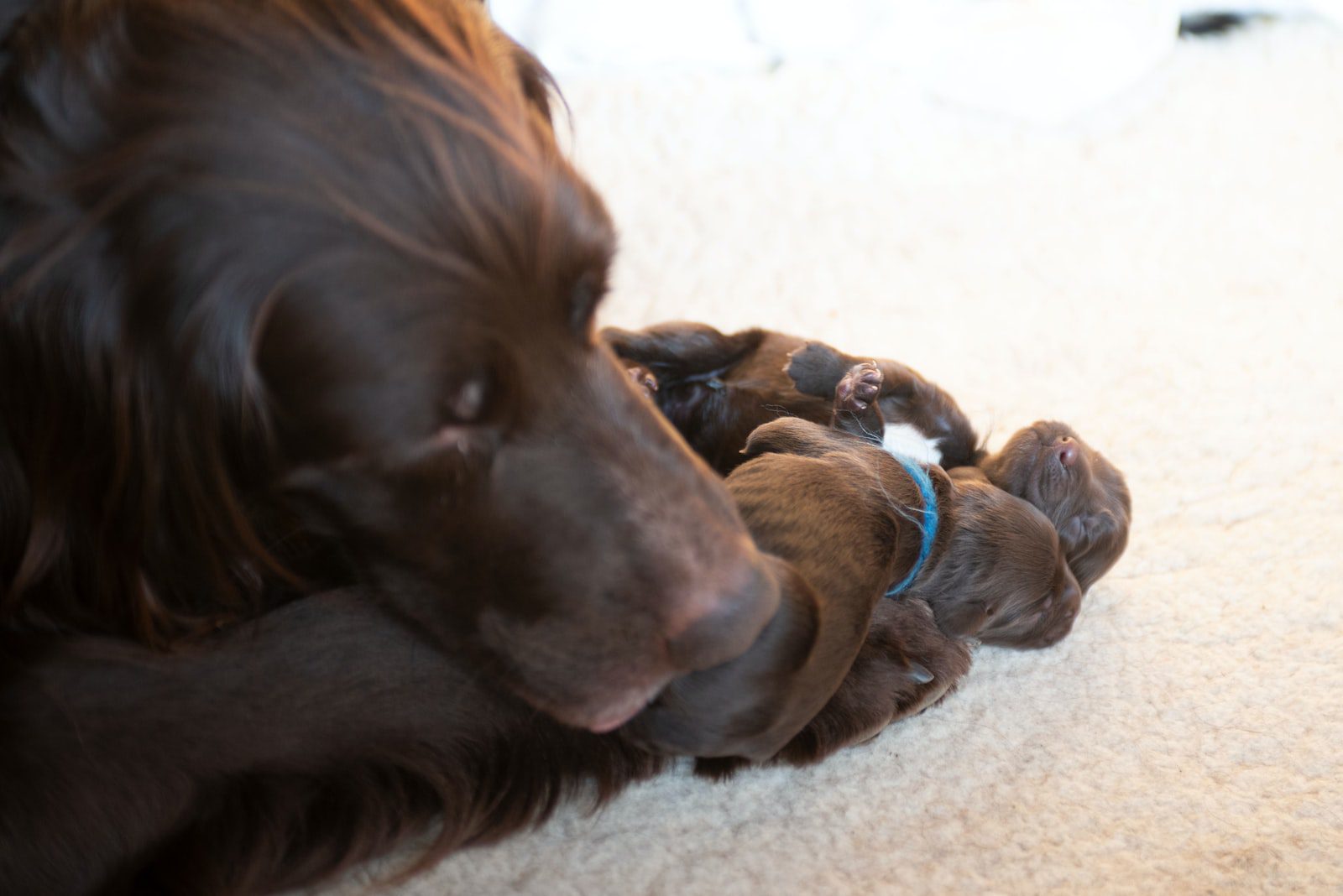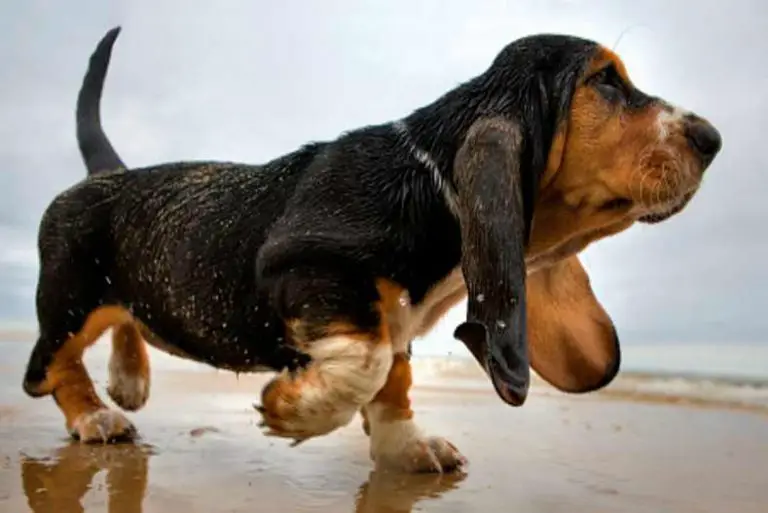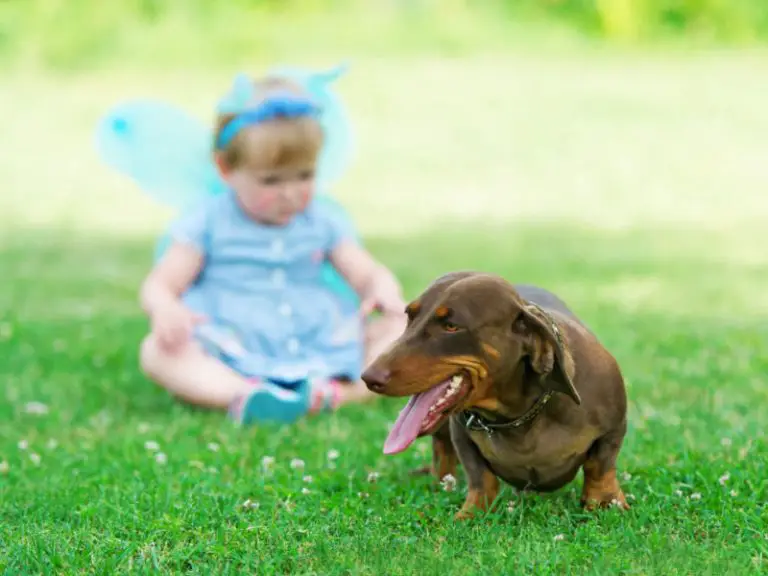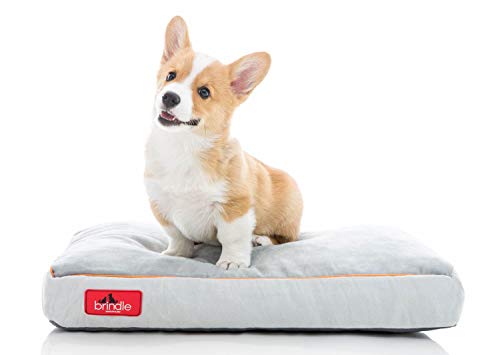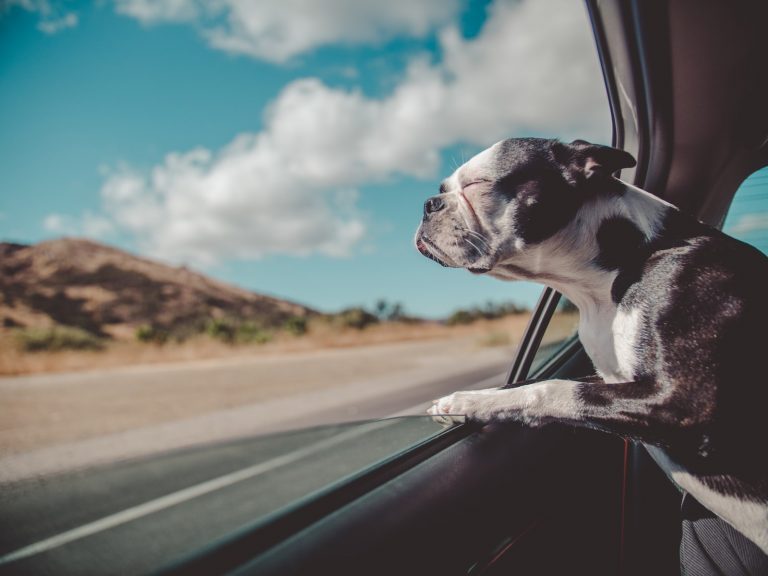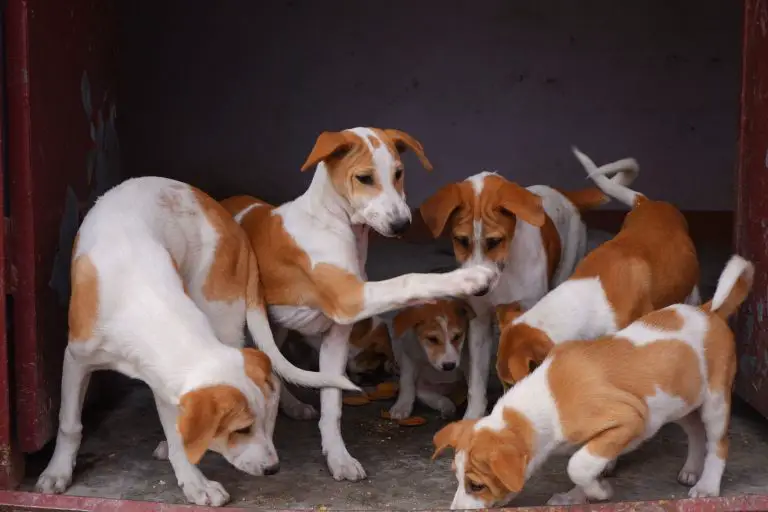Having a newborn litter of puppies around can be exciting for every dog owner. These tiny little fur balls look adorable and soon become the center of attention.
Unfortunately, however, not all of them grow into adults. This can be due to several health issues that are common in puppies, such as respiratory problems, infection, circulatory issues, etc.
Sometimes, puppies are even killed by their mother!
Quite often, nature at work is neither cuddly nor cute, and when it comes to animals, we cannot impose the standards of human morality on them. They simply do not function under the same social structures and norms that humans do.
While it may seem like a dog breeder’s or pet owner’s worst nightmare, cannibalism—or infanticide—is a phenomenon that does occur in the canine world.
You’re probably wondering, ‘why do dogs eat their puppies?’ No matter how heartbreaking or disconcerting this sounds, mother dogs may have valid reasons to do this.
To understand this behavior, you need to know more about how mother dogs look after their puppies and what strategies they come up with to manage sick puppies that have little chance to survive.
Let’s take a deep dive into this topic and get a better understanding of it.
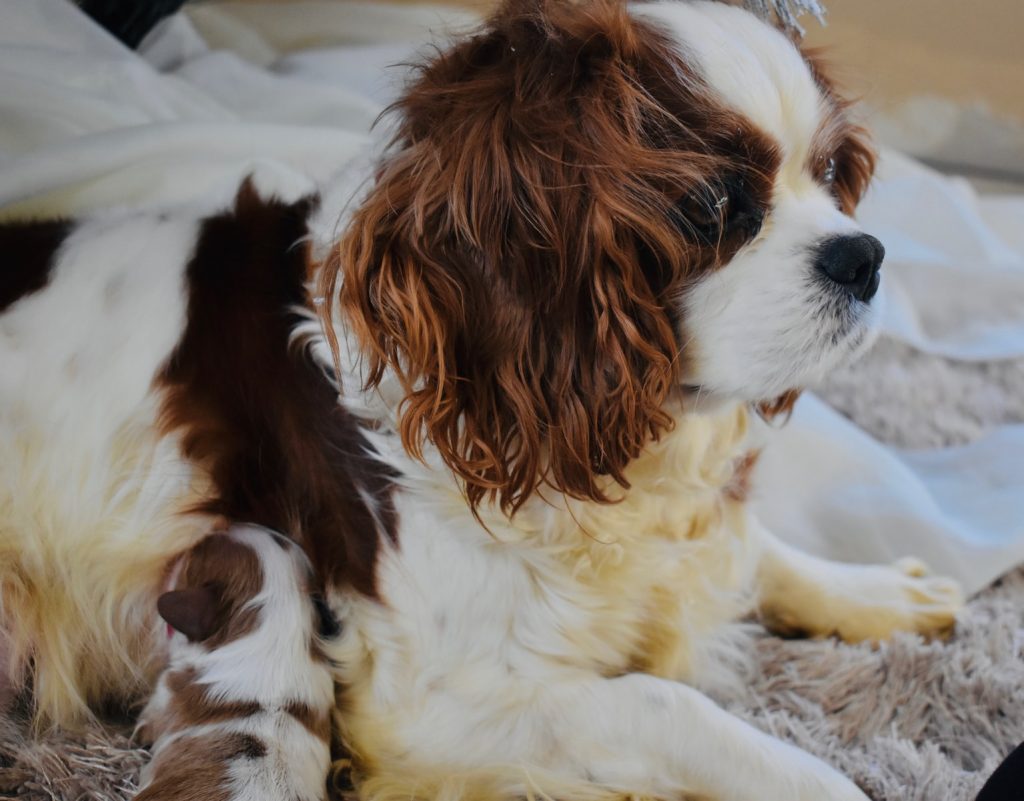
What You Must Know About Maternal Care in Dogs?
We must discuss a few important points about maternal care in dogs before we answer the awful question “why do dogs eat their puppies?”
Generally, the mother dog will know how to look after her offspring without the need of any outside help or guidance.
As soon as the puppies are born, the mother dog frees them from the water sac – a thin, protective membrane that carries the puppies while they come out of their mother’s uterus.
The mother dog tears it open with her teeth. Next, they lick their puppies to remove any fluid or secretions from their bodies and bite off the cord to disconnect them from the placenta.
All this knowledge comes instinctively to them even if it’s their first time as mothers. They also take care of the puppies’ diet and keep them safe.
In some cases, certain problems may arise, such as clumsiness, exaggerated care, or neglect. Maternal neglect could mean that the mother dog won’t lick, clean, or nurse one or more pups.
This happens when maternal bonding fails to take place. This neglect is usually reserved for the runt of the litter, who is considered too weak to survive by the mother.
Clumsy mothers can also be a problem as they can roll over their pups while they are asleep or injure them while chewing off the membrane or cord.
Other dams may go a little too overboard with licking that they end up damaging the skin around the pups’ heads or umbilical area. This behavior may also evolve into cannibalism.
But is this a behavior that goes against their instincts?
Is Cannibalism in Dogs a Real Thing?
An animal eating another animal is known as cannibalism. This is not very common in dogs, especially if they have birthed a litter in an enclosed home environment. However, at times, some pups do get eaten by their mother.
Puppy cannibalism can occur exactly at the time of birth or even a few days after giving birth. Cannibalism is also not specific to any particular breed of dogs.
Both pure and mixed breed mother dogs are equally prone to killing their offspring. That being said, it may or may not be something that’s inherited.
Similarly, it may or may not happen in subsequent litters.
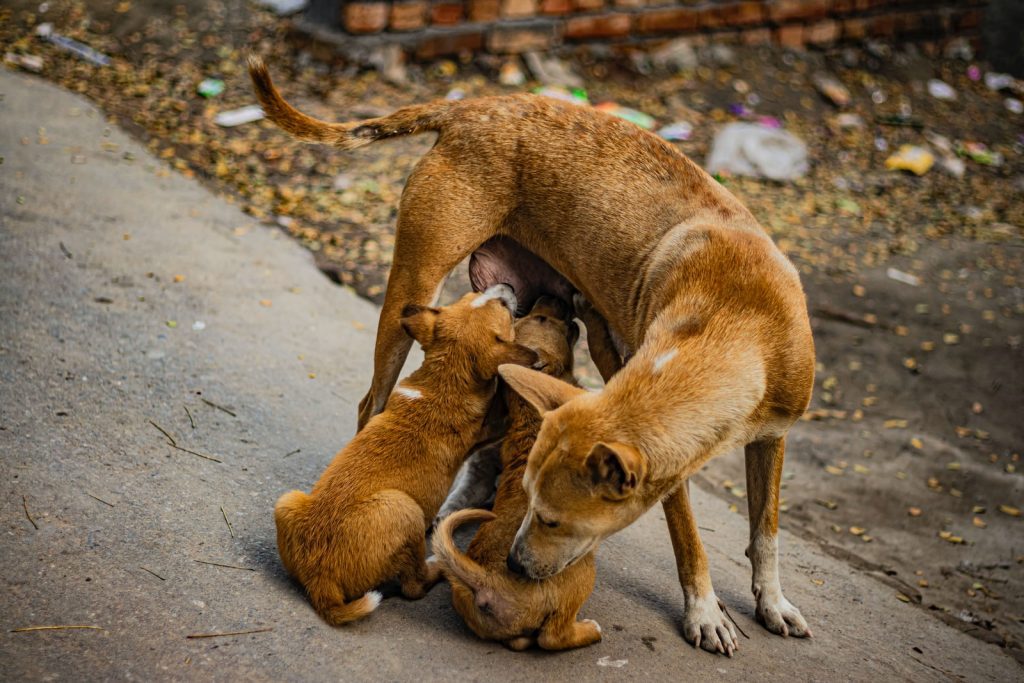
Why Would a Dog Eat Its Puppies?
Even though it sounds horrific, there are several valid reasons why do dogs eat their puppies. Let’s take a look at a few of the most common ones.
About 1 in 7 or 8 puppies are born with a medical condition that causes a drop in the puppy’s body temperature. The mother dog instinctively disregards any puppies whose body temperatures are below normal. They will separate it from the rest of the litter and kill it.
That’s how they encourage the survival of the fittest. This is also their way to end the sick puppy’s misery as they know the pup won’t survive. So, you can think of it as a kind ‘mercy killing.’
Sometimes, a new mother may not recognize the puppies as her babies. This is also true for dams who go through C-sections. The lack of hormones released during a natural birth may lead to the mother not recognizing her offspring.
As a result, infant puppies make high pitched sounds and move about in confusion. The mothers can mistake these behaviors for the actions of prey animals such as rodents. These dams can then feel forced to eat their puppies as a self-defense mechanism.
At times, even after natural birth, the hormones kick in a little later than usual. This causes the mother not to recognize her pups, and she ends up killing her entire litter before the hormones kick in. This unfortunate event usually happens in the case of inexperienced mothers.
An inexperienced mother dog may experience a range of negative emotions soon after she gives birth. There may be too many people coming to see the litter, which tends to overwhelm the protective mother. This is why they need a secluded place where they can freely tend to their newborns.
If a mother can’t find a quiet and secluded place for their puppies or if the litter is too big for them to handle, they will stress out and act in fear. These negative emotions can trigger aggressive behaviors in the dam, and they could end up eating their puppies.
Mastitis is a condition that makes it painful for dams to nurse their young. It is the inflammation of the teats that makes them tender, swollen, hot, hard, and painful to touch. The pain can be extremely distressful for the dam. It can make them reject their babies. Even worse, the pain can make them aggressive and cannibalize their offspring.
Mother dogs may kill sick or stillborn puppies so that they can focus on the healthier ones. They know that having a sick member in their litter will put the rest of the litter at risk as unwanted predators will get attracted to them.
So, they have to remove such threats by eating up the weaker puppies. By taking out the runt of the litter, a mother dog is ensuring that the rest of her litter survives. In other cases, they may carry the puppies away from the nest or bury them somewhere.
If a female dog is bred at a very young age, she may act very irresponsibly during her first breeding. This is because the dog itself will not be mature enough to handle the birthing process and the resultant puppies. She might feel utterly overwhelmed because, during the first few weeks, the puppies depend entirely on their mother for everything.
This huge and overwhelming responsibility can lead to them killing their babies. This is why it’s critical not to breed the mother during her first heat cycle. It also ruins her chances of ever becoming a stable mom to her pups, regardless of how many litters she gives birth to.
Finally, a new and inexperienced mother may kill her puppies accidentally. Accidental puppy death happens when an inexperienced mother accidentally crushes her newborn pups, lays down on them during sleep, or smothers them while feeding by mistake.
Not every mother dog has the instinct to gently put their puppies in a safe spot, away from harm. The more inexperienced they are, the likelier they are to harm their pups by mistake.
To ensure that the mother does not accidentally kill her litter, install railings to encapsulate the area where the puppies are being kept. Also, keep an eye on the mother and her pups at all times.
Can Male Dogs Kill Puppies?
This happens in some animal species such as lions or gorillas that kill the younger members of their group as a means of survival. They do it to avoid having to allot valuable resources to their young or to stop their female mating partners from weaning so they can go back into heat more quickly.
However, this is not true for dogs. In general, male dogs do not cannibalize their young or kill them unless it’s an accident. They don’t have much reason to do so. As far as the availability of female dogs is concerned, the heat cycle of female dogs resumes a few months after they give birth regardless.
That said, it’s better not to have a male dog hanging around a female dog right after birth. Even the dad of the puppies should be kept away from the litter for the first few weeks. The presence of male dogs nearby can stress out the mother and her puppies. If the mother is under stress, it can lead to her making aggressive decisions, including eating her babies.
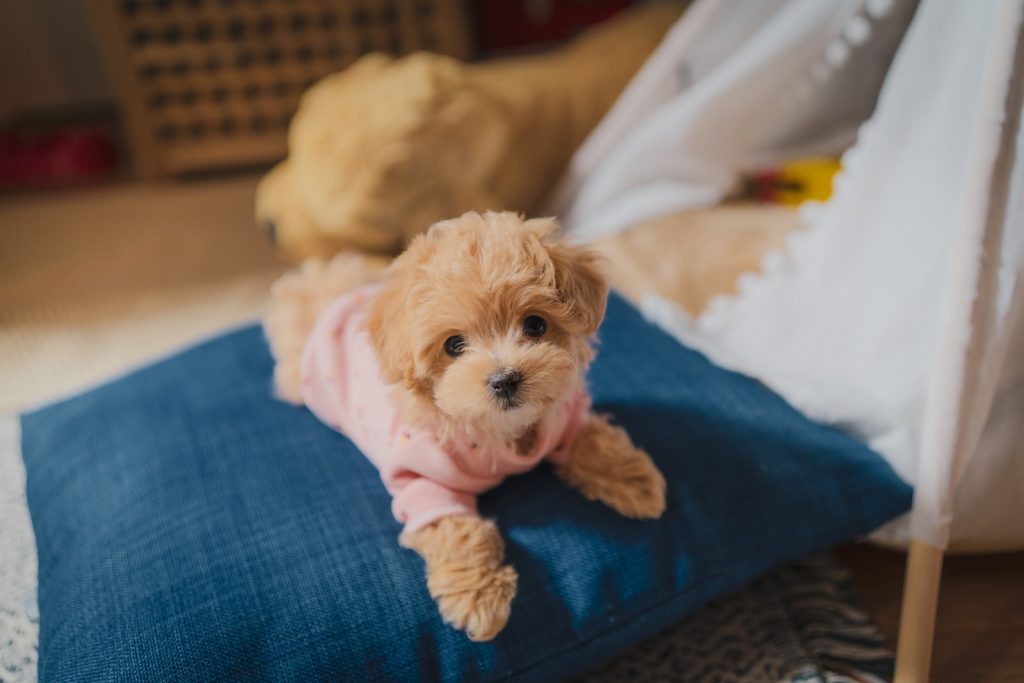
How to Prevent a Dog From Eating Its Puppies?
Now that we have answered in detail why do dogs eat their puppies, let us discuss some ways you can prevent this awful thing from happening.
Newborn puppies are quite vulnerable to several health risks. As a pet owner, keep a close eye on your puppies during the first few weeks of their life to keep them healthy and safe. This way, you will ensure that the mother does not kill the puppies in her litter that are weak or not doing as well as the healthier pups.
This also includes observing the mother’s interactions with her litter and detecting any abnormal behaviors promptly. As the owner of the dam, you should behave like the dam’s second in command or as the second mother to the babies. Thus, whatever the mother dog is unable to do for her pups, you must step in and do yourself.
In case you observe that the dam is showing no maternal instincts and is acting clumsily or separating herself from one or more of her puppies, you will have to take over as the litter’s full-time mother for some time. If you hear muffled cries, then know that the puppies are in trouble, and the mother could be hurting them.
Also, you need to ensure that the pups are in good health. Take both the mother and the puppies to see a veterinarian 24 hours after the birth so any medical issues can be diagnosed timely and necessary treatment can be provided. Moreover, the doctor will ensure that there aren’t any retained placentas that the mother dog may attempt to eat since she can injure the babies in the process.
As the litter’s sound mother, you will also have to help the mother dog provide food, warmth, and shelter to her litter. This includes keeping warm blankets and towels in the kennel and hand-feeding the pups that are too weak to feed on their own with the help of tiny bottles or syringes. These actions will also help in stimulating greater maternal instincts in the actual mother.
To give the new mother and her litter a peaceful and stress-free environment, it’s best to relocate the whelping box to a quiet and clean place. This will make the mother dog more relaxed, and she will be more likely to release the right hormones that kick in feelings of love and care for her litter.
If your dam is attached to you, she will feel much less stressed if you’re around. Therefore, choosing a location where you spend most of your time would be of great help. This will also help you keep an eye on the litter and the mother and allow you to intervene right away if anything goes wrong.
A tired or overwhelmed dam may feel incapable of caring for her litter, especially if given birth to a big one. The bonding between the mother and her puppies chiefly relies on hormones that are released both during labor and later during nursing. You can offer some support if you observe that the puppies can’t automatically latch on the mother’s teats.
First, try to introduce them yourself. You can do it by making your dam lie on her side and placing her puppies near her belly in a way that the babies’ mouths are positioned as close to her breasts as possible. Some extra help from a friend or a family member can make this process easier. You can focus on the litter while your friend soothes the mother dog as she nurses her babies.
However, make sure you take help from someone who is well familiarized with the dam; otherwise, it can add to her anxiety and stress and may worsen the situation. In case you observe any kind of aggressive behavior while trying to help with the nursing, you need to separate the litter from the mother dog immediately.
If introducing the puppies to the mother’s teats doesn’t work, you can try other methods to feed the pups. Buy a puppy milk re-placer and drench it in a soft cotton ball. Gently pick up one pup at a time and try to make it suck on the cotton ball. This way, you will ensure that the pups are being fed properly. If you don’t feed them, they will remain weak, and the mother will be inclined to kill them.
Additionally, there could be several reasons behind the mother not feeding her pups, including mastitis. It’s best to consult your veterinarian and follow their treatment and advice accordingly. Mastitis or other infections such as metritis (inflammation of the uterus) are serious medical conditions and require antibiotic treatment.
If left unchecked, they may become life-threatening for the mother dog. Moreover, pups should never take milk from an infected mother. This is because the immunity of newborn pups is pretty weak, and they are more susceptible to infections than adult dogs.
Moreover, if the temperature of newborn pups is less than 70°F, you need to use a heat lamp or a heating pad to increase the temperature to about 85°F. This will prevent the mother from killing her pups, thinking that they won’t survive.
Last Few Words on Why Do Dogs Eat Their Puppies
Dog owners find the question “why do dogs eat their puppies?” utterly appalling but the truth of the matter is that it does happen for a number of reasons.
Cannibalism or infanticide in dogs is not that common, but it can happen. The chances of this phenomenon happening are greater in the case of first-time, inexperienced mothers. They may sometimes not recognize the litter as their own and eat the puppies as a predatory instinct.
Thus, you should never accuse them. The best you can is to help relax the mother dogs and provide them all the necessary support. This way, they will be able to take care of their babies and provide them a safe and healthy environment.
References
- Besteiros, María. “Why Do Dogs Eat Their Puppies? – Possible Reasons Explained.” Animalwised.com, Animalwised.com, 20 Mar. 2019, www.animalwised.com/why-do-dogs-eat-their-puppies-3070.html.
- Crnec, Dr. Ivana. “Ask The Vet: Why Do Mother Dogs Eat Their Puppies?” Whelping Puppies, 18 Nov. 2019, whelpingpuppies.com/why-do-mother-dogs-eat-their-puppies/.
- Farricelli, Adrienne. “Why Mother Dogs May Kill Their Puppies.” PetHelpful, 30 May 2019, pethelpful.com/dogs/Why-Mother-Dogs-May-Kill-Their-Puppies.
- Steve. “The Reason Why Dogs (Sometimes) Eat Their Puppies…” Daily Dog Stuff, 22 Apr. 2020, www.dailydogstuff.com/why-do-dogs-eat-their-puppies/.

